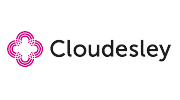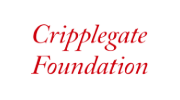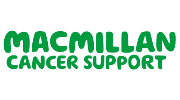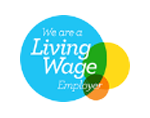For ways to maintain your wellbeing during the Coronavirus outbreak see our 5 Ways to Wellbeing section with tips on being active, connecting, giving, learning and taking notice.
General Coronavirus health information
NHS advice for everyone on Coronavirus (COVID-19). The NHS advice states the following if you fee unwell:
If you have symptoms of coronavirus (a high temperature or a new, continuous cough), use the 111 coronavirus service.
If you need help or advice not related to coronavirus:
for health information and advice, use the NHS website or your GP surgery website
for urgent medical help, use the NHS 111 online service – only call 111 if you're unable to get help online
for life-threatening emergencies, call 999 for an ambulance
NHS test and trace: how it works get an overview of the NHS test and trace service, including what happens if you test positive for coronavirus (COVID-19) or have had close contact with someone who has tested positive.
Guidance on how to stay safe and prevent transmitting and catching Coronavirus from the Government for everyone in the UK.
Self-isolating guidance from the Government for households with possible Coronavirus infection.
Shielding guidance from the Government on protecting extremely vulnerable people from Coronavirus Covid-19. Shielding is for people in very high-risk groups who have been advised to stay in for 3 months If you are in this category you should have received a letter about it. If you did not receive a letter but that you are required to shield, contact your GP and register here.
BBC Asian Network have produced videos of GPs explaining COVID-19 in Gujurati, Hindi, Sylheti, Tamil and Urdu.
Doctors of the World have Coronavirus NHS health guidance available in 46 languages and a growing number of different language videos.
Organisations that offer health support
Alcoholics Anonymous is up and running during the lockdown. Although normal-face-to-face meetings have been suspended, many meetings have gone online and we are experiencing a large influx of newcomers. Helpline: 0800 917 7650 Email: help@aamail.org Or use the Chat Now facility on their website.
Alzheimers Society are providing telephone support to people and their Carers affected by Dementia. Call them on Tel: 0333 1503456.
BlindAid provide telephone support for blind and sight impaired people across Islington.
Carers UK is here to make sure that no matter how complicated your query or your experience, you don't have to care alone. Caring can be extremely complicated get the support you need on their website from their online forums and fact sheets.
Centre 404 offers a range of high quality services to assist children and adults with a learning disability and their family carers. For general enquiries, please ring 020 7607 8762 or email general@centre404.org.uk. They are supporting families through COVID-19 with additional resources online.
Choice and Control Peer Coaching offers coaching to people affected by severe mental illness or a long term health condition and mental health condition. They are continuing to offer phone support to clients. See their website for further details.
Clic is a new online support community that anyone in the UK can access 24/7 for free mental health support. It includes an online forum where you can chat about how you’re feeling and connect with others, as well as accessing mental health information tools, tips and resources. To ensure everyone's safety and security the site is moderated 24 hours a day.
FCV Dorcas is offering telephone befriending to residents of the following Islington wards - Bunhill, Caledonian, Canonbury, Clerkenwell and Mildmay. Contact them on admin@fcv-dorcas.org.uk or hello@fcv-dorcas.org.uk.
Kinship runs an advice service and you can also join their kinship community to hear stories and news and attend their support groups.
Healthwatch Islington is providing information and signposting to Islington residents. You can contact them via the contact us option on their website or call or email philippa.russell@healthwatchislington.co.uk Tel: 07538 764436.
HNG Stress Project is a Holloway Neighbourhood Group project. They are offering a befriending service for local people to help combat isolation and share information. Call them on 020 76079794 or email firestation@hng.org.uk
Islington Bereavement Service is offering bereavement support from volunteers by telephone only. For information, email islingtonbereavement@stjh.org.uk or Tel 020 3317 5774.
Islington Carers Hub is continuing to support carers during COVID-19. Their priority is your wellbeing and supporting you in your caring role. If you need support email info@islingtoncarershub.org or ring the Age UK Islington Helpline: 020 7281 6018 or ring 0800 085 1141 (FREEPHONE).
Islington Mind is offering a range of services. They also have a directory of Coronavirus useful links.
Mental Health Foundation has put together some useful resources on maintaining good mental health during this crisis.
Mental health support for young people in Islington is available from the Council's Social, Emotional, Mental Health (SEMH) Service.
Mind's Coronavirus information hub has tools covering a range of issues including loneliness, managing stress, bereavement and trauma.
National Autistic Society has resources and tips for autistic people and their families.
NHS Moodzone website has a mood self assessment and mental well-being audio guides.
NHS Social Care and Support Guide: If you or someone you know needs help with day-to-day living because of illness or disability, this website explains your options and where you can get support.
Rethink Mental Illness have Covid-19 information on their website for people with mental illness and their carers.
Samaritans - call or email the Samaritans if you are feeling lonely, suicidal or overwhelmed with the current situation Tel: 116 123 Email: jo@samaritans.org
The Recovery College - offer co-produced recovery-focused courses in four broad areas: Recovery Journey, Mental Health Conditions, Wellbeing, and Self-development. Thier courses promote hope that recovery is possible. They are lively, aspirational and interactive. They aim to empower people in practical ways by teaching them self-care tools to improve their wellbeing. Click here for more information.
The Stuart Low Trust provides safe spaces and community activities focusing on arts, nature and wellbeing, including out of hours. For more information ring 0207 7713 9304 or email info@slt.org.uk
Veterans - an independent guide including finance, housing and mental help support for veterans.









